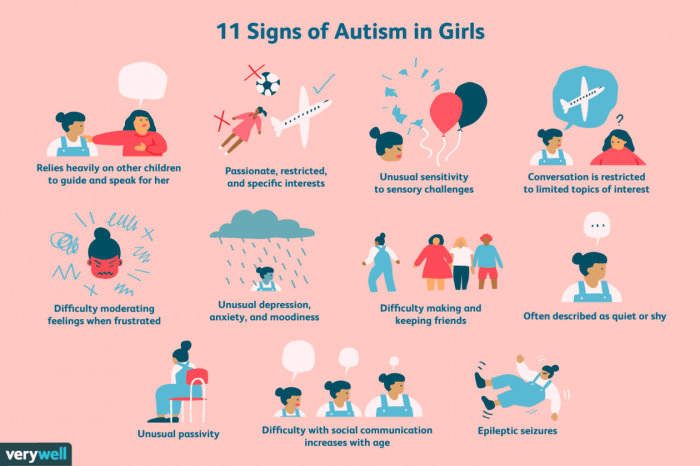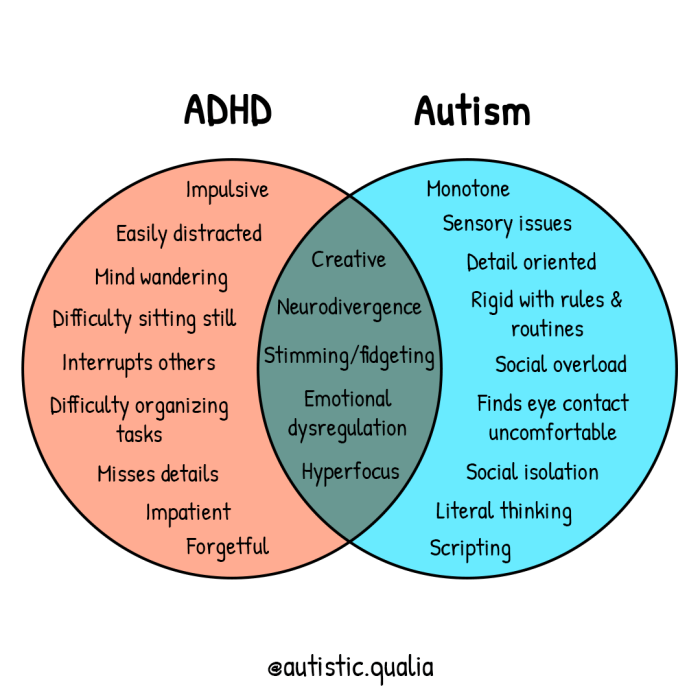Which is not a characteristic demonstrated by individuals with autism – In the realm of autism, individuals exhibit a spectrum of characteristics that define the condition. However, there are certain traits that are notably absent in this population, providing a glimpse into the complexities of the disorder.
Delving into these non-autistic characteristics, we unravel the nuances that differentiate autism from other conditions, illuminating the path towards accurate diagnosis and tailored interventions.
Characteristics NOT Demonstrated by Individuals with Autism

Autism is a complex neurodevelopmental disorder characterized by difficulties in social interaction, communication, and repetitive behaviors. However, it is important to note that not all individuals with autism display the same characteristics. Some may exhibit atypical presentations, demonstrating traits that are not typically associated with the condition.
Social Interaction
- Individuals with autism may demonstrate a desire for social interaction, even if they struggle with social skills.
- They may show interest in making friends and engaging in social activities.
- They may exhibit empathy and concern for others’ feelings.
Communication, Which is not a characteristic demonstrated by individuals with autism
- Individuals with autism may have fluent speech and language skills.
- They may be able to use language in a flexible and imaginative way.
- They may understand and use humor appropriately.
Repetitive Behaviors
- Individuals with autism may not engage in repetitive or stereotyped behaviors to the same extent as others with the condition.
- They may be able to control their repetitive behaviors or use them in a functional way.
- They may have a wide range of interests and hobbies.
Answers to Common Questions: Which Is Not A Characteristic Demonstrated By Individuals With Autism
What are some common non-autistic characteristics?
Individuals with autism may demonstrate social engagement, empathy, and language skills that are not typically associated with the condition.
How can non-autistic characteristics aid in differential diagnosis?
The absence of certain characteristics can help distinguish autism from conditions such as social anxiety disorder or obsessive-compulsive disorder.
How does recognizing non-autistic characteristics impact intervention?
Tailoring interventions to address the specific needs of individuals who do not exhibit typical autistic characteristics can enhance outcomes.

